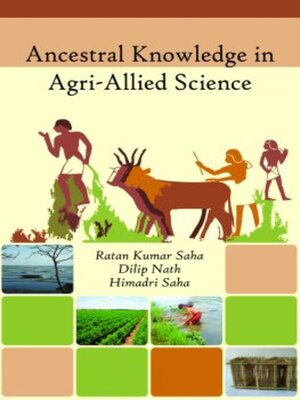
Sign up to save your library
With an OverDrive account, you can save your favorite libraries for at-a-glance information about availability. Find out more about OverDrive accounts.
Find this title in Libby, the library reading app by OverDrive.



Search for a digital library with this title
Title found at these libraries:
| Library Name | Distance |
|---|---|
| Loading... |
Indigenous knowledge is the knowledge of the indigenous people inhabiting different geographical regions of the world with their own language, culture, tradition, belief, folklore, rites and rituals. Indigenous knowledge so developed is based on necessities, instinct, curiosity and observations of ethnic groups to mitigate the immediate situations. Eventually, this local knowledge in course of time gets socially accepted and validated which finally inters into the social life and subsequently become the Indigenous Traditional Knowledge (ITK) of the society as a whole. As such, scientist in this knowledge base economy who are in research of new ideas and innovations expect that indigenous knowledge may hold significant message which may be of use to remedy the deficiencies in modern agricultural and environment related issues. There is a need for studying and documenting traditional knowledge in different ecological and cultural environments. Several researchers are working on ITK in different fields of agriculture and allied sectors. There is a demand for a standard book on the overview of ITK. This book is designed in such a way that will give an overview of ITK, the differences between Science ITK, different tools and techniques used in ITK, classification, importance utilization of ITK, and recent ongoing researches on ITK in different parts of India. The objective of this book is to encourage the study of ethnic knowledge in different field of agriculture and allied sector. It is also an attempt to circulate amongst a larger group of readers regarding the importance of indigenous knowledge in scientific world. This book will, perhaps, be well received in all the Agricultural Universities, Animal Husbandry Fisheries University, State Govt. Agri-allied Departments, Private and Public Sector Institutions where training, teaching, research and extension of agri-allied sector is undertaken.







